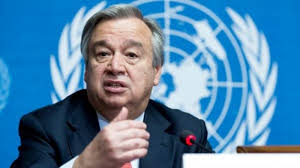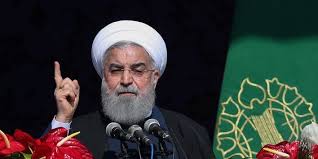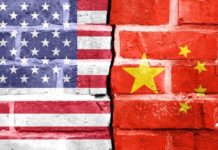By Aaron Ukodie
The United Nation Secretary-General, António Guterres said on Thursday, the world recorded the hottest period in human history in July, adding that global political tensions are also heating up, and war could break if parties do not urgently apply break to ongoing bickering.
The global body scribe said in a press conference yesterday, that although the world had lived through hot summers, the one in July 2019, was not “the summer of our youth. This is not your grandfather’s summer”.
According to him the very latest data from the World Meteorological Organization and its climate center– the month of July at least equaled if not surpassed the hottest month in recorded history. This was followed by the hottest June ever, he said.

“This is even more significant because the previous hottest month, July 2016, occurred during one of the strongest El Niño’s ever. That is not the case this year.
“All of this means we are on track for the period from 2015 to 2019 to be the five hottest years on record.
“This year alone we have seen temperature records shatter from New Delhi to Anchorage – from Paris to Santiago – from Adelaide to the Arctic Circle.
If we do not take action on climate change now, these extreme weather events are just the tip of the iceberg”, according to him.
Guterres said the iceberg is also rapidly melting and the heat wave which affected Europe in the last month has now raised temperatures in the Arctic and Greenland by 10-15 degrees Celsius, at a time when Arctic Sea ice is already near record low levels.
He, said all hands should be on deck to prevent irreversible climate disruption, saying that the world would be meeting to consider a Climate Action on September 23rd.
The September 23 meeting would be preceded by a Youth Climate Summit on September 21st
World’s leading scientists have warned that must limit temperature increases must be limited to 1.5C to avoid the worst impacts of climate change, with greenhouse emissions cut by 45% by 2030, and carbon neutrality achieved by 2050.

He announced that Norway’s Parliament has voted to divest the world’s largest sovereign wealth fund – worth $1 trillion – from fossil fuels, while many countries — from Chile to Finland, and from the United Kingdom to the Marshall Islands — have concrete and credible plans to achieve carbon neutrality by mid-century.
Many others — from Ethiopia to New Zealand to Fiji to Pakistan — are planting hundreds of millions of trees to reverse deforestation, buttress climate resilience, and remove carbon dioxide from the atmosphere, according to him.
Credit ratings agencies are moving to better account for the widespread perils of climate disruption — and more banks and financial institutions are pricing carbon risks into financial decisions.
Asset managers representing nearly half the world’s invested capital – some $34 trillion – are demanding urgent climate action, calling on global leaders “to phase out fossil fuel subsidies … and thermal coal power worldwide”, and “put a meaningful price on carbon”.
Leading businesses around the world are also recognizing that moving early from the grey to the green economy will deliver competitive advantages, while delaying will lead to huge losses.
Rising Global Political Tension
The UN scribe also noted that there are rising political tension throughout the world, with particular reference to rising tensions in the Persian Gulf and between armed nuclear states.

He said that a minor miscalculation could lead to a major confrontation. “The last thing the world needs is a major confrontation in the Gulf that will have devastating implications on global security and the global economy.
“Second, I am troubled by growing friction among the two largest global economies. We need to learn the lessons of the Cold War and avoid a new one.
“Looking into the not so distant future, I see the possibility of the emergence of two competing blocs — each with their own dominant currency, trade and financial rules, their own internet and artificial intelligence strategy, and their own contradictory geopolitical and military views.

“The Intermediate Nuclear Forces Treaty — the INF — is a landmark agreement that helped stabilize Europe and end the Cold War.
“When it expires tomorrow ( today), the world will lose an invaluable brake on nuclear war. This will likely heighten, not reduce, the threat posed by ballistic missiles.












